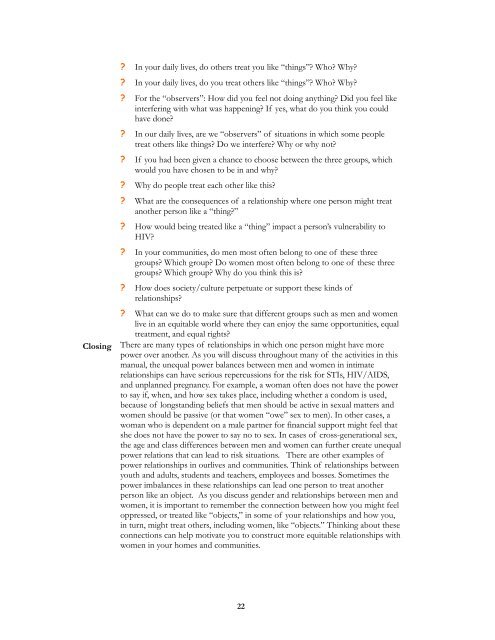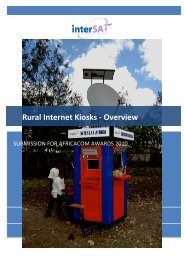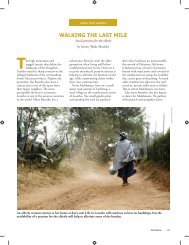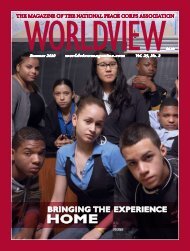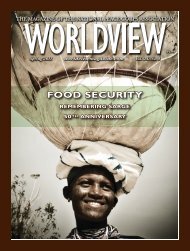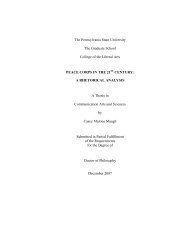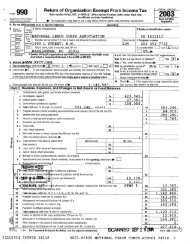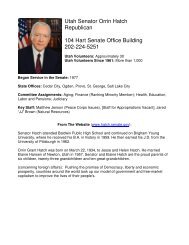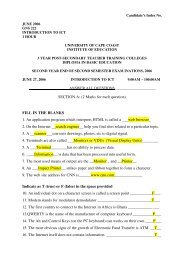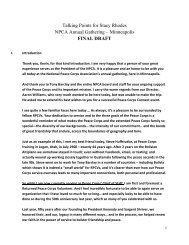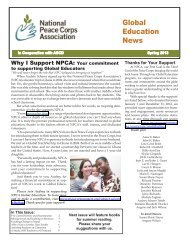Group Education Manual - Peace Corps Wiki
Group Education Manual - Peace Corps Wiki
Group Education Manual - Peace Corps Wiki
Create successful ePaper yourself
Turn your PDF publications into a flip-book with our unique Google optimized e-Paper software.
Closing? In your daily lives, do others treat you like “things”? Who? Why?? In your daily lives, do you treat others like “things”? Who? Why?? For the “observers”: How did you feel not doing anything? Did you feel likeinterfering with what was happening? If yes, what do you think you couldhave done?? In our daily lives, are we “observers” of situations in which some peopletreat others like things? Do we interfere? Why or why not?? If you had been given a chance to choose between the three groups, whichwould you have chosen to be in and why?? Why do people treat each other like this?? What are the consequences of a relationship where one person might treatanother person like a “thing?”? How would being treated like a “thing” impact a person’s vulnerability toHIV?? In your communities, do men most often belong to one of these threegroups? Which group? Do women most often belong to one of these threegroups? Which group? Why do you think this is?? How does society/culture perpetuate or support these kinds ofrelationships?? What can we do to make sure that different groups such as men and womenlive in an equitable world where they can enjoy the same opportunities, equaltreatment, and equal rights?There are many types of relationships in which one person might have morepower over another. As you will discuss throughout many of the activities in thismanual, the unequal power balances between men and women in intimaterelationships can have serious repercussions for the risk for STIs, HIV/AIDS,and unplanned pregnancy. For example, a woman often does not have the powerto say if, when, and how sex takes place, including whether a condom is used,because of longstanding beliefs that men should be active in sexual matters andwomen should be passive (or that women “owe” sex to men). In other cases, awoman who is dependent on a male partner for financial support might feel thatshe does not have the power to say no to sex. In cases of cross-generational sex,the age and class differences between men and women can further create unequalpower relations that can lead to risk situations. There are other examples ofpower relationships in ourlives and communities. Think of relationships betweenyouth and adults, students and teachers, employees and bosses. Sometimes thepower imbalances in these relationships can lead one person to treat anotherperson like an object. As you discuss gender and relationships between men andwomen, it is important to remember the connection between how you might feeloppressed, or treated like “objects,” in some of your relationships and how you,in turn, might treat others, including women, like “objects.” Thinking about theseconnections can help motivate you to construct more equitable relationships withwomen in your homes and communities.22


